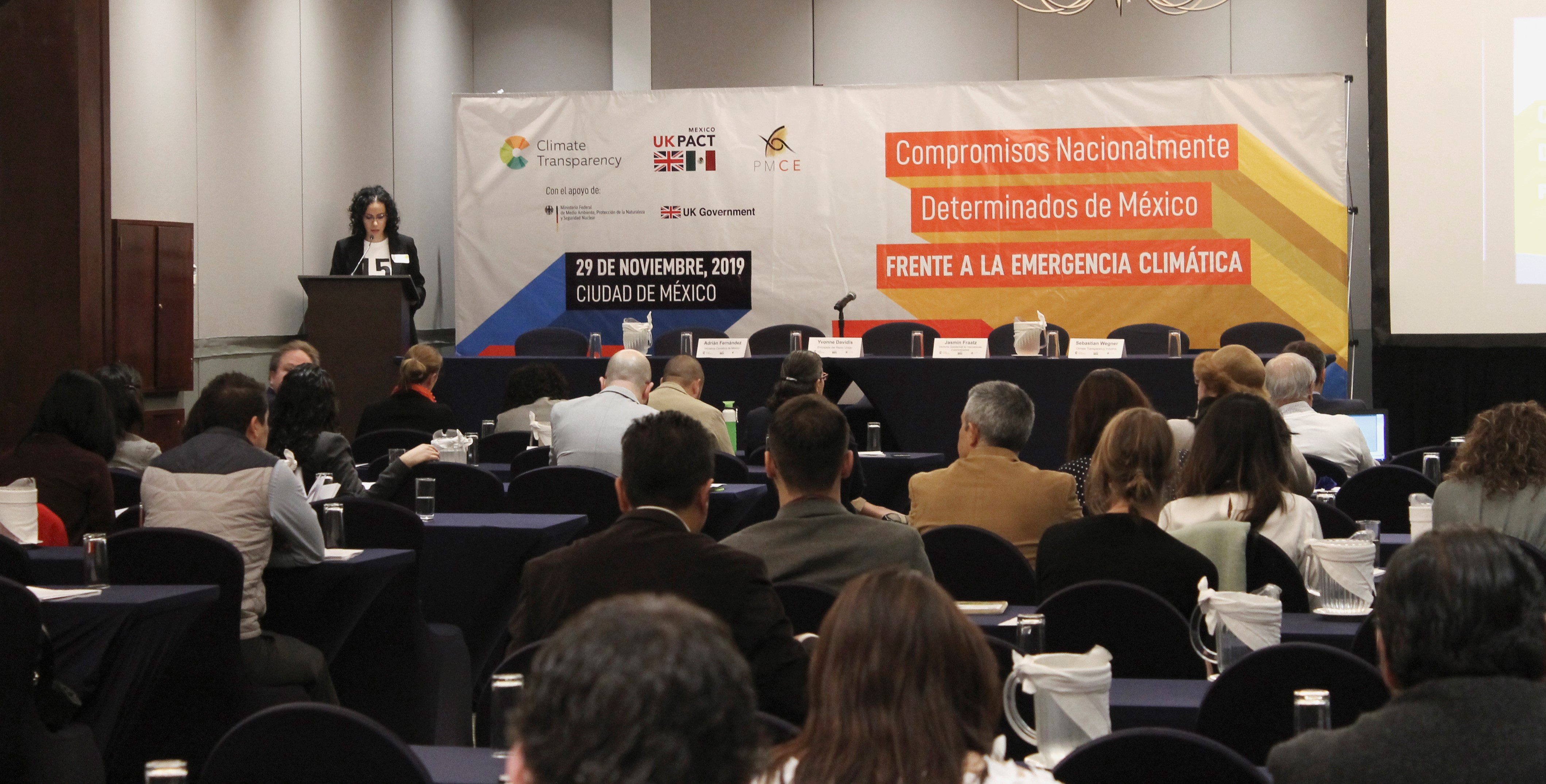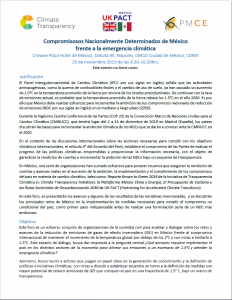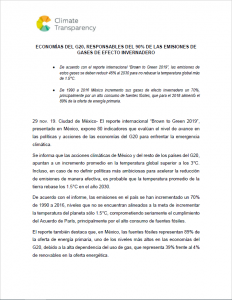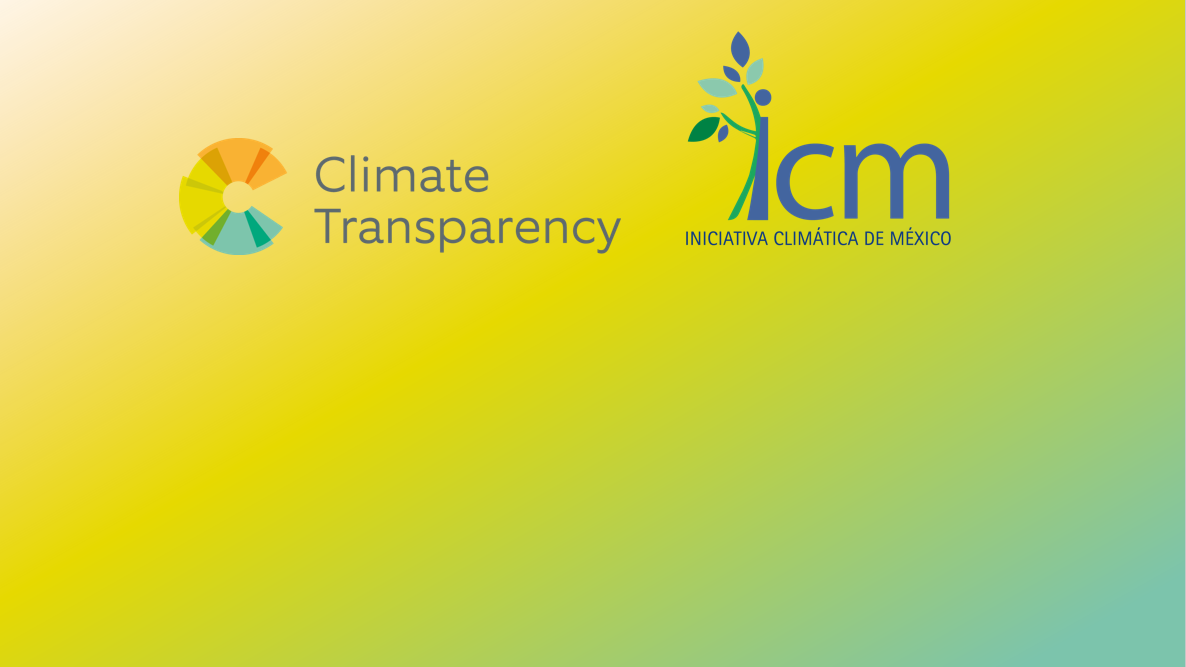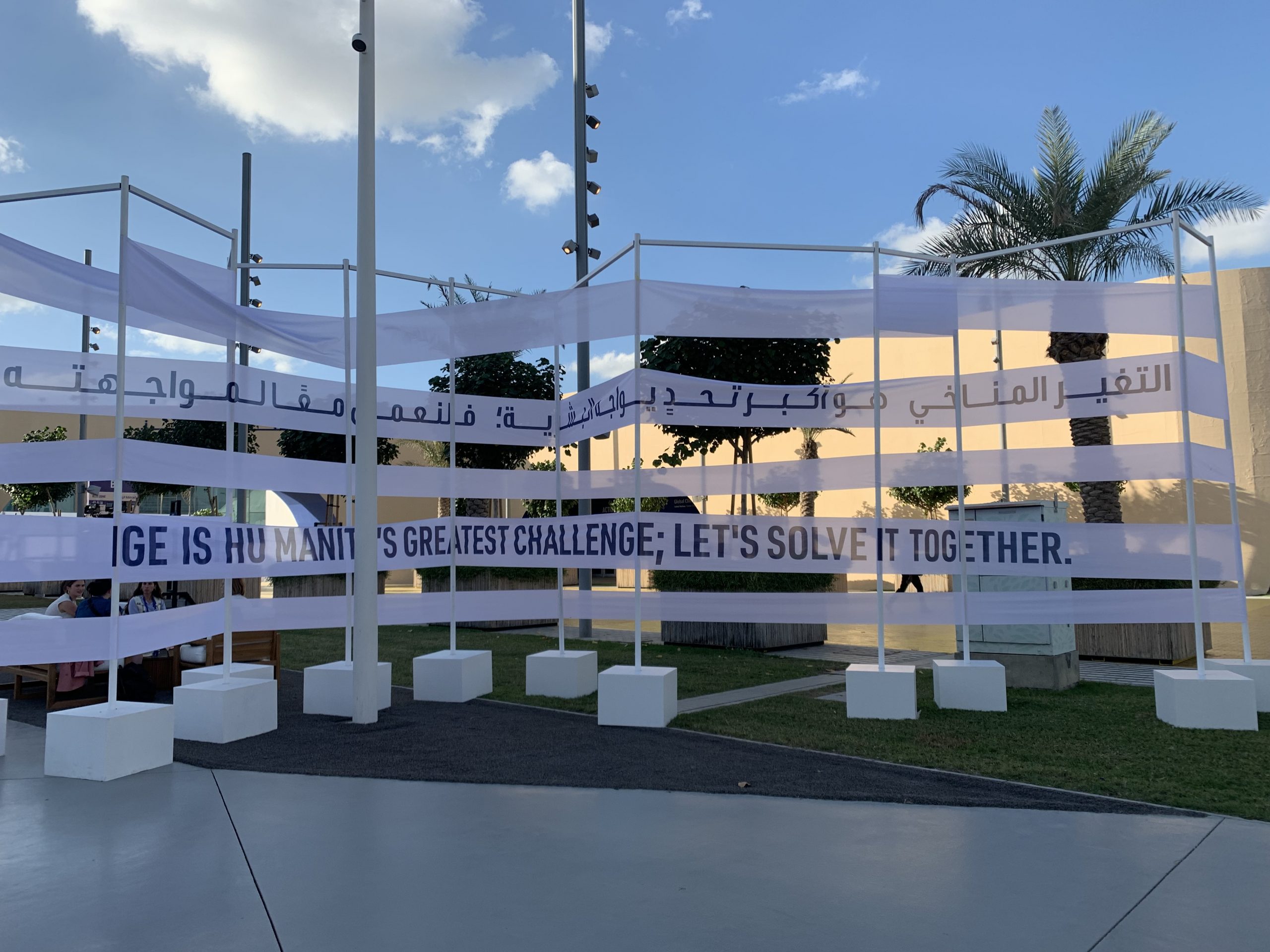Iniciativa Climática de México (ICM) and Climate Transparency in alliance with UK PACT (Partnering for Accelerated Climate Transitions) and the Plataforma México Clima y Energía (PMCE) co-organized the forum: “Nationally Determined Contribution of Mexico in face of the climate emergency” on 29 November 2019, during which the Brown to Green Report 2019 was launched.
The forum was structured around three panels, four simultaneous workshops and was attended by more than 100 participants from non-governmental organizations, international cooperation agencies and representatives from the federal government and Mexico City’s local government.
At the opening of the forum Adrián Fernández, stated: “ICM is honored to be a part of Climate Transparency that provides knowledge inputs developed with objectiveness and sufficient technical foundation, providing an annual review of the G20 climate action and their Nationally Determined Contributions”.
Sebastian Wegner emphasized the relevance of international cooperation and the Climate Transparency work to stimulate national debate about the urgency of more ambitious climate action: “Forging international alliances with key organizations (such as ICM) is essential to develop new solutions and strategies that enhance the implementation of public policies, reduce greenhouse gas emissions and address the climate emergency. We need new stakeholders and narratives to enhance transformational changes”, said Sebastian Wegner.
Partners of Climate Transparency from Mexico and Argentina presented key results for both countries in the Brown to Green Report 2019.
Jorge Villarreal, ICM’s Director for Climate Policy and Transport, underlined the key results for Mexico:
- “Progressiveness” is a mandatory principle of the Climate Change Law that aims to enhance the creation of more ambitious climate policies to comply with the Paris Agreement’s temperature limit of 1.5°C. Therefore, Mexico’s 2020 NDC must reflect more ambitious climate actions. Nonetheless, Mexico’s climate action is insufficient to address the climate emergency. Mexico’s primary energy supply is dominated by fossil fuels (82%) while renewable energy represents only 4%. Mexico needs to push forward a transformational change in its energy mix and decision-making, which are going backwards from the Paris Agreement. Also, the federal government needs to elaborate a different mechanism to define climate commitments in absolute terms and placing the social dimension at the center of policymaking.
Gabriel Blanco from Fundación Ambiente y Recursos Naturales (FARN) remarked:
- Argentina’s climate policy performance to address the climate emergency is not aligned with the 1.5°C pathway. The primary energy supply must be transformed to increase renewables (which currently represent only 6%). However, we must think carefully before we act and not cause more severe social consequences. We must discuss on what we need to do to comply with the 1.5°C and prioritize the package of public policies but we need to think beyond that.

